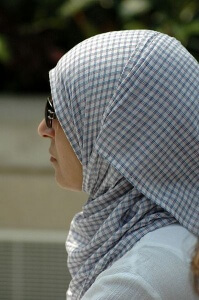Burkini Debates in France: Why a Woman’s Choice of Swimsuit Matters
October 9th, 2016

France has a long history of banning religious symbols and emblems.
A “burkini” is a combination of the words “bikini” and “burqa.” While most of us have a very clear understanding of what a bikini is, a burqa is something much different. A burqa is a robe-like garment that some Muslim women wear over their day-to-day clothes. The burqa completely covers the woman, except for her eyes.
A burkini is a swimsuit that covers all parts of a woman’s body except for the feet, hands, and face. Additionally, the burkini is made of a more swimsuit-like material and although it is loose fitting, many liken the garb to a wetsuit.
The burqa itself has seen its fair share of controversy ranging from women’s rights questions to safety concerns related to terrorism. Despite the ongoing disputes regarding traditional burqas, the burkini has now entered the picture and brings with it its own share of controversy.
France has Not Been Burqa Friendly for Years
The idea of the burkini seems innocent enough, but nonetheless you have likely seen recent headlines about some areas in France banning the outfit on beaches. In August of 2016, several people were injured in a brawl on the island of Corsica, and although authorities were unable to pin down the exact reason for the fight, the initial allegations indicated that a religious disagreement was to blame.
France has a significant track record of banning religious symbolism, and in 2004, the country passed a law forbidding students and teachers from wearing religious emblems in schools and higher education institutions. In 2010, France banned the wearing of the full-face burqa in public. Although the ban was not just limited to burqas, and includes most face-covering garb, increased fear of terrorism seems to be the motivation behind the law.
What is the Future of Religious Symbolism in France?
Although France’s top court has ruled that banning the burkini violates basic freedoms, the lower court maintains that the ban is valid based on the grounds of keeping people safe. That is to say, if there are no burkinis, then no one will get into fights over them.
How France moves forward with the burkini ban, along with its other limitations on one’s ability to express their religious ideology, remains to be seen. Despite these restrictions, France still has its fair share of violence and terrorism and we must ask whether the country is exerting energy to prevent these tragedies in the best way possible.
With the current global political climate poised for continued uncertainty as we approach not only our own presidential election, but the European Brexit issue and ongoing conflict in France to name a few examples, Universal Life Church remains dedicated to staying up to speed. We will continue to research current events affecting religious freedoms both domestically and throughout the world. We will post blog articles frequently discussing both new and ongoing matters, so please continue to check back frequently.
(image courtesy of Wendy Slattery)


